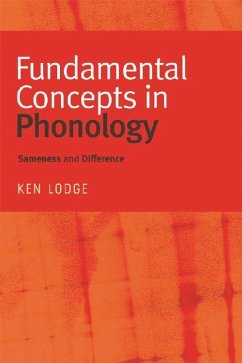This book is an investigation of the basic concepts of phonological theory. In particular it is concerned with the concepts of sameness and difference, each a sine qua non of classification. It is assumed that all academic disciplines operate with these two basic concepts when classification is involved. Since phonology is the area of linguistics that deals with the interface between the abstract system of native speaker knowledge and physical entities in the world, the linguistic classification of those physical entities needs to be guided by clear and rigorously applied criteria for deciding what constitutes the same sound and what not. During the development of modern linguistics over the past hundred years or so it has generally been assumed that the criteria for classification are to be found in a segmented version of the phonetic continuum of spoken language. This is still largely the case today, even though the system of native speaker knowledge of language is seen as a highly abstract mental representation of that knowledge. This book questions the basis of such assumptions, in particular segmentation, abstractness, monosystemicity and derivation. Key features: *The first book to deal with aspects of phonology which are often ignored or passed over very briefly in the available literature, yet are at the core of the subject. *Considers various recent developments across a range of phonological theories. *Explores a range of key issues in phonological theory which relate to the application of sameness and difference: biuniqueness, monosystemicity, derivation, specification, abstractness, segmentation, panlectal grammars. Ken Lodge is Senior Lecturer in Linguistics and Phonetics, University of East Anglia.
Hinweis: Dieser Artikel kann nur an eine deutsche Lieferadresse ausgeliefert werden.
Hinweis: Dieser Artikel kann nur an eine deutsche Lieferadresse ausgeliefert werden.

